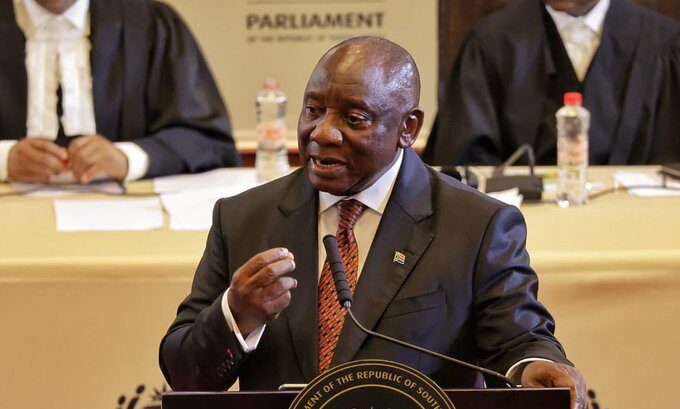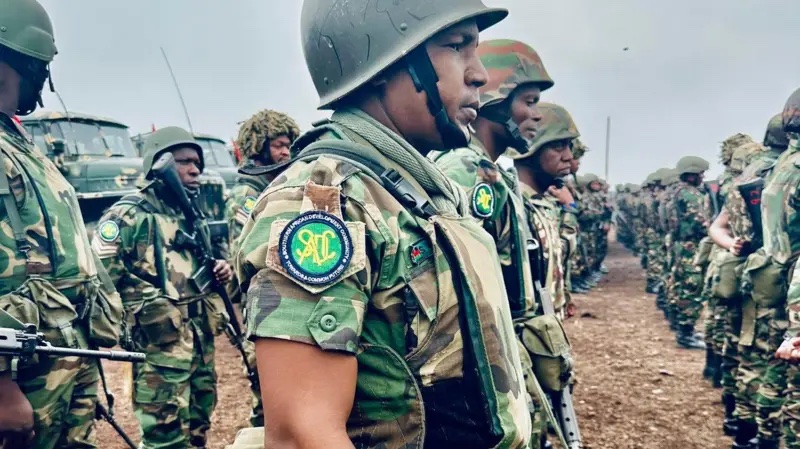HARARE – Zimbabwe has denied it has deployed troops to Mozambique to help its eastern neighbour crush an Islamist insurgency in the Cabo Delgado region that has been besieged by violence for at least the last three years.
A human rights group in Mozambique, the Centre for Democracy and Development, claimed on May 2 that a “major military operation (infantry and air force) was underway in northern Cabo Delgado” where “Mozambique’s state army supported by Angola and Zimbabwe was searching for jihadist terrorists.”
The claim came after President Emmerson Mnangagwa met his Mozambican counterpart Filipe Nyusi on April 30 in Chimoio. A communique issued at the end of the meeting, also attended by the two countries’ defence ministers, said the leaders “addressed the security situation in Cabo Delgado” in Mozambique’s north and “strongly condemned these acts which seek to undermine efforts towards peace and development.”
“Zimbabwe has not deployed the Zimbabwe Defence Forces in Mozambique,” government spokesman Ndavaningi Mangwana said on Sunday in response to media enquiries.
Claims of the deployment had drawn an angry response from the opposition.
Tendai Biti, the MDC deputy president, said Zimbabwe should only act as part of a regional collective.
“The reported deployment of Zimbabwean troops in Mozambique represents further reproduction of illegalities and ill-thought actions by the regime,” he blasted. “Assuming there is an urgent military situation in Cabo Delgado, surely the region collectively must act. A meeting of SADC must be held.
“Further, any involvement should only have been part of a SADC mission, nothing else. Parliament should be notified and the constitution should be followed.
Biti said the reported deployment, if true, was “total madness” as Zimbabwe’s broke government was ill-prepared for its ongoing “war” with the coronavirus.
“Zimbabwe can’t afford unilateralism nor war.”
Respected Zimbabwean journalist Brezhnev Malaba reported on May 1 that Mozambique’s government had hired Rtd Lieutenant Colonel Lionel Dyke, a former Zimbabwean military officer, as a private military contractor to fight the insurgency.
“He’s the head of a mercenary outfit. This week, his helicopter gunships were decisive in pushing back Islamist insurgents in Metuge district. Fighting rages on,” Malaba said.
Dyke was notably involved in Zimbabwe’s military adventure in the Democratic Republic of Congo starting in 1999. The United Nations later said, in a report, that Zimbabwe’s military commanders and politicians, including current president Mnangagwa, looted millions from illicit diamond trade during the war.
Biti said: “History has now shown that Zimbabwe’s participation in the DRC war was not based on Pan Africanist solidarity but greed and avarice. UN reports expose the massive looting of diamonds and bauxite that took place under cover of that war. Regrettably, the same characters are now in Mozambique.”
Mozambique last month said its security forces killed at least 129 insurgents in the gas-rich northernmost province.
Since 2017, infrequent but violent raids on government buildings and villages by militias with suspected links to the Islamic State have intensified
The interior ministry said the 129 killings were the total for the month, and were a retaliation for an attack in Xitaxi in Muidumbe district earlier in April, where insurgents killed 52 villagers.
Little is known about the insurgents, though initial attacks were claimed by a group known as Ahlu Sunnah Wa-Jama. More recently, Islamic State has claimed a number of attacks.
Security officials have struggled to contain the attacks. Since clinching re-election in January President Filipe Nyusi has vowed to dedicate more resources to fighting the insurgency.
Exxon Mobil and Total, among the multi-national oil majors developing the gas projects off the shore of northern Mozambique thought to be worth more than US$60 billion, have expressed concern the violence could affect operations.
Interior minister Amade Miquidade said in a statement that 39 extremists were killed when they attempted to invade Muidumbe village on April 7, with 59 killed in a gun battle in Querimba islands three days later. Thirty-one more were killed in Ibo Island between April 11 and April 13, the statement said.
















